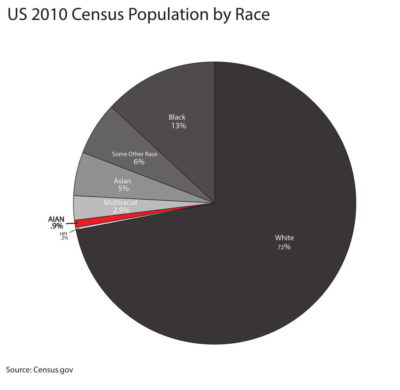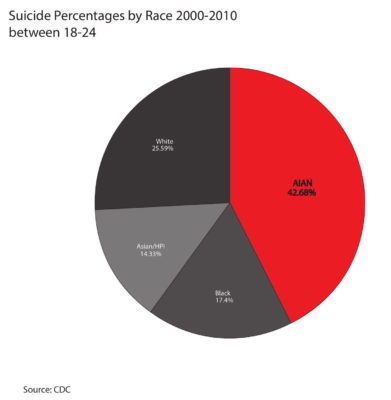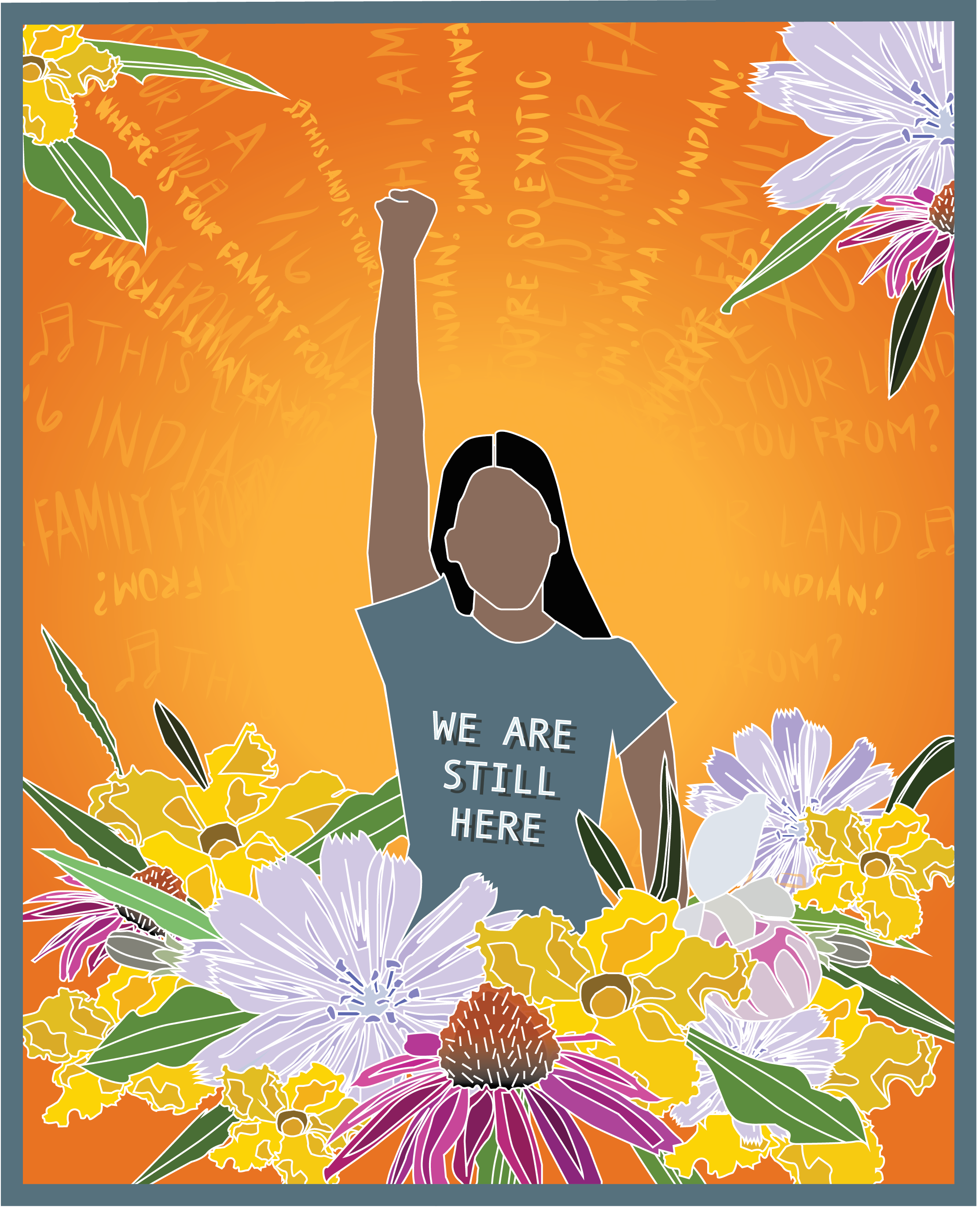Oct. 8 started like any regular Monday. I woke up at 8 a.m., took a shower, brushed my teeth, ate some breakfast and read some emails, all before taking my L train ride into the city from Brooklyn for my 10 a.m. class. Reading for Writers: Journalism is my advocacy journalism class, where we often read argumentative op-eds.
While my day started deeply rooted in routine, I also woke up feeling a sense of emotional anxiety for the day ahead. As an Amerindigenous person, I am often reminded of the historical context of my oppression and where I am in my life due to colonization; I am reminded daily of the systems I am forced to navigate within and around in order to survive.
The second Monday of October always makes these thoughts more concrete because while some still celebrate Columbus Day, this day reminds me of the genocide, enslavement, cultural erasure and diaspora we faced and are challenged with still today.
Microaggressions from living within a colonial context are abundant in my day to day life. These microaggressions come in various forms and often leave me upset; they sadden and stun me, at times leaving me immobile.
Microaggressions often appear harmless to the people who are not part of a minority group.
Simple questions like, “Where are you from?” or ”No, I mean where is your family from? Your ancestors?” remind me of the erasure we have faced and still face today. To these questions I usually respond with, “I am from here.” (The general here, as in North America.) As far back as my ancestral lineage goes, my ancestors did not “sail the ocean blue” or land here from some exotic land. This answer is usually not good enough for people who think this country was made for and by immigrants (this notion is also another form of a microaggression). Microaggressions can even be as simple as non-representation, erasure and failure to acknowledge the issues Amerindigenous people face in political and social justice conversations. “Compliments” like, “You are so exotic,” are laced with microaggressions; how can I be exotic on the land my ancestors are from?
Even kid songs can be a microaggression, like “This Land Is Your Land” by Woody Guthrie, in which the belief and legacy of “Manifest Destiny” lives on today.
While we are not a monolithic group of people and we all have different experiences based on where we live or how we were raised, microaggressions can be different for us. One thing is certain: we share a common history. Colonization has affected all of us.
While this land was built up by black slaves and continues to be built up by the oppression of both people of color and immigrants of all nations, it was also built upon Amerindigenous land and the genocide of our people. It is important to not forget the original sin of the settlers that first landed on Amerindigenous soil. The History Channel published on its website, “Columbus and his men enslaved many native [Amerindigenous] inhabitants of the West Indies and subjected them to extreme violence and brutality. Later, Columbus sent thousands of peaceful Taino “Indians” from the island of Hispaniola to Spain to be sold. Many died en route.”
While we have come a long way from such atrocities, which white supremacy and colonialism have inflicted upon us, we haven’t come far enough. A lot of Amerindigenous people still lack access to medical resources, educational resources and even sovereignty. How can Amerindigenous people be sovereign when we still have to work within colonization by proving our indigeneity through blood quantum levels in order to be federally recognized? How can we be sovereign when land treaties are still violated like at Standing Rock?
While we only make up .9% of the total US population, in certain issues we more than lead the way.

For example, Amerindigenous youth still have the highest rate of suicide between the ages 18-24.

According to a report from the Center of Disease Control and Prevention, of the suicides that go reported, 42% are committed by Native American youth. Sexual assault rates are high among Amerindigenous women; about 5-9.5 out of 10 Amerindigenous women (depending on the region) have been sexually assaulted by men, who, as it turns out, are mostly non-Amerindigenous, according to a CDC and Urban Indian Health report shared by the Independent.
How can it be that non-Amerindigenous people benefit from our land, our culture, our food and our natural resources, and yet we have a lack of representation politically, in media and in society at large? We are still here.
We existed way before Columbus came to our land. Columbus Day become a federally recognized national holiday in 1937. Given everything we know about the impact of Columbus, why is this day still acknowledged?
As I made my way to my Reading for Journalism: Writing class, I pondered that perhaps I should stay home.
I walked in two minutes late and already the class was talking about genocide, ethnic cleansing and borders.
The mostly non-Amerindigenous class of 14 students went around and talked about the Mexican-American border and the child separation that happened to mostly Amerindigenous children of Central America.
One student went on to say, “But is this really ethnic cleansing? I mean, ethnic cleansing happened in Nazi Germany to the Jewish people. I don’t see how separating children is the same as ethnic cleansing.”
Another student nodded her head in agreement.
The professor went on to ask the opinion of another student.
Every bone in my body told me get up and go. Speak up.
I listened to my inner voice and left, but not before I said, “I can’t do this. It’s Amerindigenous Peoples’ Day, and you all are saying some really horribly, ignorant shit.” I looked over to my professor and said, “I gotta go.”
One of my classmates followed me out and asked me if I was okay. I really appreciated that.
On my train ride back to my haven in Bushwick, I reflected on the history of my ancestors. I wondered if The New School recognized Amerindigenous Peoples’ Day.
While The New School doesn’t acknowledge Columbus Day on their event calendar, it also doesn’t acknowledge Amerindigenous Day–nor are there any events that acknowledge our history, our land or our presence. As a college that claims social justice as a high priority, I find the lack of recognition for the historical context of our land and our history extremely lacking and disrespectful.
Illustration by Olivia Heller







